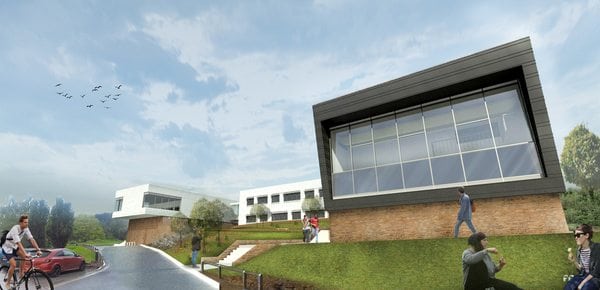Appointment to design National College for Nuclear
Austin-Smith:Lord has been appointed to design two new buildings for the award-winning Bridgwater & Taunton College in Somerset, as part of the College’s strategy to deliver world class facilities and curricula to address the need for higher level skills regionally, nationally and internationally.
One of the new buildings will form the southern hub of the Government’s flagship National College for Nuclear (NCfN), which was announced earlier this year and is funded by the Department for Business, Energy and Industrial Strategy, with additional finance coming from the Heart of the South West LEP.
Due to open in November 2017, the NCfN building will revolutionise the way in which higher level professional and technical training for the nuclear sector is delivered, utilising innovative technology and virtual reality simulators to replicate a nuclear working environment, whether in nuclear new build/operation/decommissioning, defence or medicine.
Austin-Smith:Lord has also designed the College’s Advanced Engineering Centre (currently under construction), which is based at its Bridgwater Centre and planned for completion in the summer of 2017. The number of engineering students at the College has seen a five-fold increase in the past five years, and it is now widely recognised as a centre of excellence for the sector, with clients that include EDF Energy, Rolls-Royce and the Ministry of Defence.
Both facilities will be set up with industry-standard equipment and resources to replicate, as far as possible, a ‘live’ working environment. By enabling learners to see and understand workplace safety, cultures and behaviours alongside job-specific skills, the College is able to deliver work-ready graduates who are fully inducted in the requirements of a licensed site and fully understand the expectations of the world of work.
Lead architect, Rob Firman of Austin-Smith:Lord commented: “This has been an exciting and innovative project. The NCfN is destined to play a critical part in the Government’s workforce strategy for nuclear, and as such does not conform to traditional educational designs, which have changed little for centuries. With wi-fi throughout, and advanced simulator technology, this College will completely transform the way in which professional and technical training is delivered.”
Our appointment follows our recent completion of the College’s Performing Arts Centre, Agriculture Innovation Centre and Biosecurity Centre.
